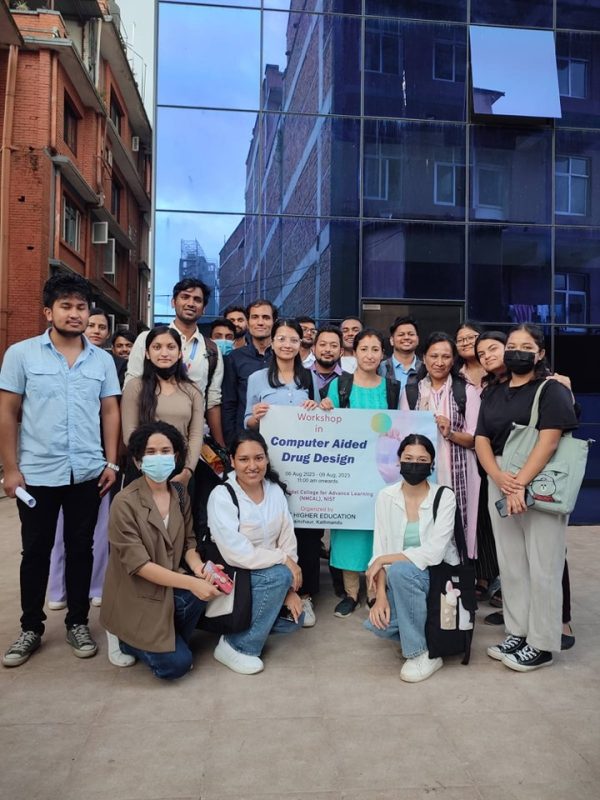B. Pharmacy
B. PHARMACY FOCUSES ON PHARMACEUTICAL SCIENCES, MEDICATION DEVELOPMENT, AND PATIENT CARE IN THE FIELD OF PHARMACY.

About Pharmacy
The Institute of Medicine (IOM) in Nepal has been a pioneer in health professions education for the last three decades. With a commitment to producing skilled Human Resources for Health (HRH) according to the nation’s changing needs, IOM launched the Bachelor of Pharmacy Program in 2000 AD (2057 BS). This move was in response to the country’s growing demand for high-quality pharmacy professionals, in line with the National Drug Policy of 1995 and regional-level policies to enhance pharmaceutical education.
National Model College for Advanced Learning (NMCAL), established in 2007 AD, operates under the NIST Foundation and is affiliated with IOM, Tribhuvan University. NMCAL has been offering the Bachelor of Pharmacy program since its inception, aiming to produce globally competent pharmacists. This 4-year course is designed to cultivate expertise in drug-related fields such as manufacturing, compounding, dispensing, and rational drug use counseling. Pharmacists, who form a crucial part of the Patient-Pharmacist-Physician triad, play a pivotal role in medication management and therapy. They possess comprehensive knowledge of various aspects of medicines, including mechanisms of action, uses, preparation, storage, interactions, adverse effects, and drug formulation quality control.
The program’s multidisciplinary approach, with a focus on research-oriented subjects, is geared towards meeting the demands of the field and producing capable professionals who bridge the gap between health sciences and the molecular realm.
Objective
The objective of B. Pharma program is to produce qualified pharmacists who could provide pharmaceutical services, research and education in the capacity of:
Community and hospital pharmacist
Herbal drug development experts
Drug/medicines regulators
Managers of pharmaceutical services
Specialists in various scientific aspects of pharmacy
Eligibility
Candidates willing to join the B.Pharm program must fulfill certain criteria:
They should have successfully completed a Certificate in Pharmacy from the Institute of Medi-cine (IOM) or a university recognized by Tribhuvan University (TU). OR,
They should have passed the I. SC. or 10+2 (Biology Group) or an equivalent degree from a board, institution, or university recognized by Tribhuvan University (TU).
They should have obtained a minimum of 50% marks in the I. SC. or 10+2 or Certificate in Phar-macy or its equivalent.
Candidates from the I. SC. and 10+2 science background should not exceed the age of 25. How-ever, there is no age limit for students with a Certificate in Pharmacy.
Eligibility
Candidates willing to join the B.Pharm program must fulfill certain criteria:
They should have successfully completed a Certificate in Pharmacy from the Institute of Medicine (IOM) or a university recognized by Tribhuvan University (TU). OR,
They should have passed the I. SC. or 10+2 (Biology Group) or an equivalent degree from a board, institution, or university recognized by Tribhuvan University (TU).
They should have obtained a minimum of 50% marks in the I. SC. or 10+2 or Certificate in Pharmacy or its equivalent.
Candidates from the I. SC. and 10+2 science background should not exceed the age of 25. How-ever, there is no age limit for students with a Certificate in Pharmacy.
Expected Outcomes
Maintain professionalism and respect
Understand pharmacy’s scientific basis
Apply knowledge creatively in various pharmacy areas
Analyze national drug policies and regulations
Lead collaborative research projects
Solve problems using knowledge and skills
Handle drug-related tasks confidently
Communicate effectively with healthcare professionals
Work in clinical settings as part of a team
Assess drug interactions and compatibility
Provide drug information to users and healthcare personnel
Monitor and implement drug policies
Plan and evaluate pharmacies and industries
Conduct research in pharmaceutical fields